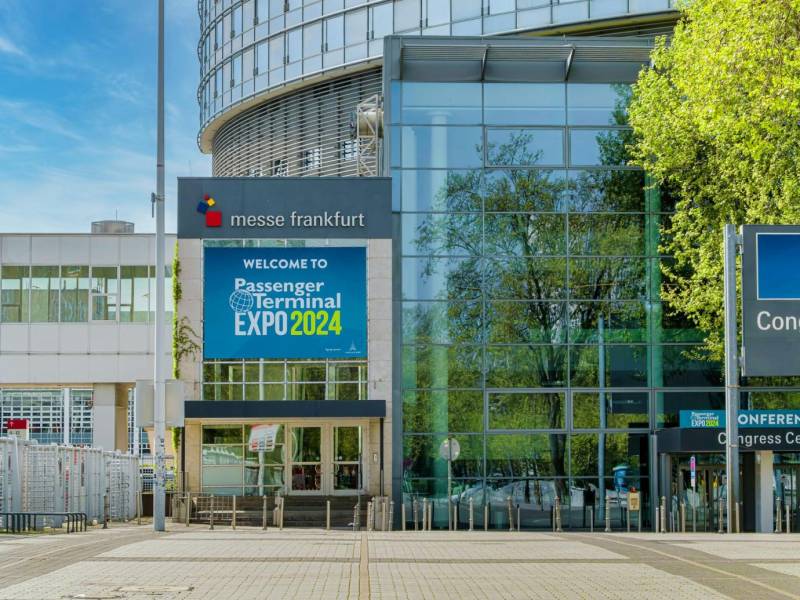Follow these steps to ensure your first trade show becomes a major success.
Business growth and lead generation alongside networking opportunities can be effectively achieved through trade shows. New data forecasts a 21% growth in revenues for the U.S. exhibition industry by 2025 which highlights the increasing importance of these events.
But here’s the thing…
New exhibitors frequently make expensive errors which restrict their show results. This guide provides you with key strategies to enhance your trade show return on investment and differentiate yourself from competitors.
What’s Coming Up:
- Understanding Trade Show Fundamentals
- Pre-Show Planning Essentials
- Booth Design and Setup Tips
- Working with Professional Trade Show Companies
- Maximizing Your ROI
- Post-Show Follow-Up Strategies

Understanding Trade Show Fundamentals
The financial figures demonstrate that trade shows represent significant business opportunities. Industry experts anticipate a global revenue increase of 18% in 2025 which underscores the critical need for a precise exhibition strategy.
But what makes trade shows so valuable? They provide:
- Face-to-face interactions with potential customers
- Direct competitor research opportunities
- Immediate market feedback on products/services
- Quality lead generation
- Brand awareness building
Trade shows serve a dual purpose by both selling products while also building relationships and establishing brand presence.
Pre-Show Planning Essentials
A successful trade show experience requires preparation well in advance of the actual event. The fact that 40% of U.S. exhibition companies plan to hire new staff in the upcoming months demonstrates the critical need for proper preparation.
Here’s what you need to focus on:
1. Set Clear Goals
- Define specific, measurable objectives
- Establish target lead numbers
- Set revenue goals
- Plan networking targets
2. Budget Properly
- Booth space costs
- Design and materials
- Staffing expenses
- Marketing materials
- Travel and accommodation
3. Train Your Team
- Product knowledge
- Pitch practice
- Lead capture procedures
- Competition awareness
Partnering with professional trade show companies streamlines this entire process. These seasoned partners handle logistical tasks so you can concentrate on strategic planning.
Booth Design and Setup Tips
Your booth represents the first impression you make so prioritize its impact. The U.S. B2B exhibition sector shows steady recovery progress and should reach full recovery by 2026 resulting in intense competition for attendee attention.
Creating an effective booth requires:
- Clear branding
- Professional design
- Proper lighting
- Interactive elements
- Comfortable space flow
The decrease in Net Square Feet by only 2.7% compared to pre-pandemic levels shows strong exhibitor participation recovery. You must put in additional effort to distinguish yourself from others.
Working with Professional Trade Show Companies
Experienced trade show companies provide first-time exhibitors with valuable expertise and support for successful participation. These professionals can:
- Handle complex logistics
- Provide proven booth designs
- Manage setup and teardown
- Offer valuable industry insights
- Ensure regulatory compliance
Your trade show partner will use their extensive experience to help you sidestep common mistakes and optimize your investment returns.
Maximizing Your ROI
Given that economic issues represent the primary concern of 27% of U.S. respondents businesses must focus on maximizing their trade show investments.
Focus on these ROI-boosting strategies:
1. Lead Capture
- Use digital lead capture systems
- Train staff on qualification
- Implement immediate follow-up
- Track conversion metrics
2. Engagement Tactics
- Interactive demonstrations
- Live presentations
- Social media integration
- Contests and giveaways
3. Networking Opportunities
- Schedule key meetings
- Attend industry events
- Join roundtable discussions
- Network after hours
Post-Show Follow-Up Strategies
The conclusion of the show does not mark the end of your responsibilities. Since 33.8% of trade shows exceeded pre-pandemic levels in Q3 2024 effective follow-up processes have become essential.
Implement these follow-up best practices:
- Contact leads within 48 hours
- Personalize your outreach
- Reference specific conversations
- Provide requested information
- Schedule next steps
Technology Integration
Technology provides substantial enhancement opportunities for your trade show presence in today’s digital era. Consider implementing:
1. Digital Lead Capture
- Mobile scanning apps
- CRM integration
- Real-time data syncing
- Analytics tracking
2. Interactive Displays
- Touchscreen presentations
- Virtual reality demos
- Live social media feeds
- Digital product catalogs
3. Communication Tools
- Team messaging apps
- Schedule management software
- Digital business cards
- Follow-up automation
Budget Management Tips
The dominance of economic concerns as an industry challenge makes smart budgeting imperative. Here’s how to maximize your investment:
1. Early Planning Savings
- Book booth space early for discounts
- Reserve hotels and travel in advance
- Take advantage of early-bird registration
- Pre-order marketing materials
2. Resource Allocation
- Focus spending on high-impact areas
- Build in contingency budgets
- Track all expenses meticulously
- Analyze ROI for future planning
Creating Lasting Impressions
The main objective should always be to build unforgettable experiences which transform into lasting business connections. Focus on:
1. Personal Connections
- Active listening
- Genuine engagement
- Problem-solving approach
- Follow-through on promises
2. Brand Consistency
- Unified messaging
- Professional appearance
- Quality materials
- Authentic interactions
Measuring Success
Establish your success metrics before stepping onto the show floor. This might include:
- Number of qualified leads generated
- Sales made during the show
- New partnerships formed
- Social media engagement
- Press coverage secured
By tracking these metrics throughout the show and after it concludes you can assess your performance and prepare better for future events.
Staff Training Strategies
The success of your trade show depends entirely on your team’s performance. Invest time in comprehensive training that covers:
1. Product Knowledge
- Detailed feature understanding
- Competitive differentiators
- Common use cases
- Technical specifications
- Customer success stories
2. Presentation Skills
- Elevator pitch mastery
- Body language awareness
- Active listening techniques
- Question handling
- Demonstration delivery
3. Lead Management
- Qualification criteria
- Data capture protocols
- Priority assignment
- Handoff procedures
- Follow-up timelines
Managing Event Day Logistics
Perfect planning cannot eliminate the unique challenges that arise on event day. These steps will help you maintain control of all aspects of event management.
- Setup Management
- Arrive early for booth setup
- Complete checklist verification
- Test all technology
- Brief team members
- Establish backup plans
2. Team Coordination
- Set clear shift schedules
- Plan break rotations
- Maintain communication channels
- Track lead metrics
- Share real-time updates
3. Crisis Management
- Keep emergency contacts handy
- Store backup materials
- Have tech support on call
- Know venue procedures
- Document any issues
It is important to incorporate flexibility into your plans to handle unexpected situations while ensuring your team stays updated on any changes throughout the day.
The Path to Trade Show Success
Trade shows offer significant possibilities for business expansion but achieving success depends on thorough planning and execution. Employ these fundamental tips alongside professional trade show companies to greatly increase your likelihood of achieving success during your initial exhibition.
Remember to:
- Start planning early
- Set clear objectives
- Create an engaging booth
- Train your team thoroughly
- Follow up effectively
- Leverage technology wisely
- Manage resources carefully
- Build lasting relationships
The trade show industry is experiencing significant growth and recovery which makes this an ideal moment to establish yourself in the trade show scene. The combination of these strategies together with collaborations with professional trade show companies positions you strongly for success in your initial exhibition experience.
HedgeThink.com is the fund industry’s leading news, research and analysis source for individual and institutional accredited investors and professionals



































